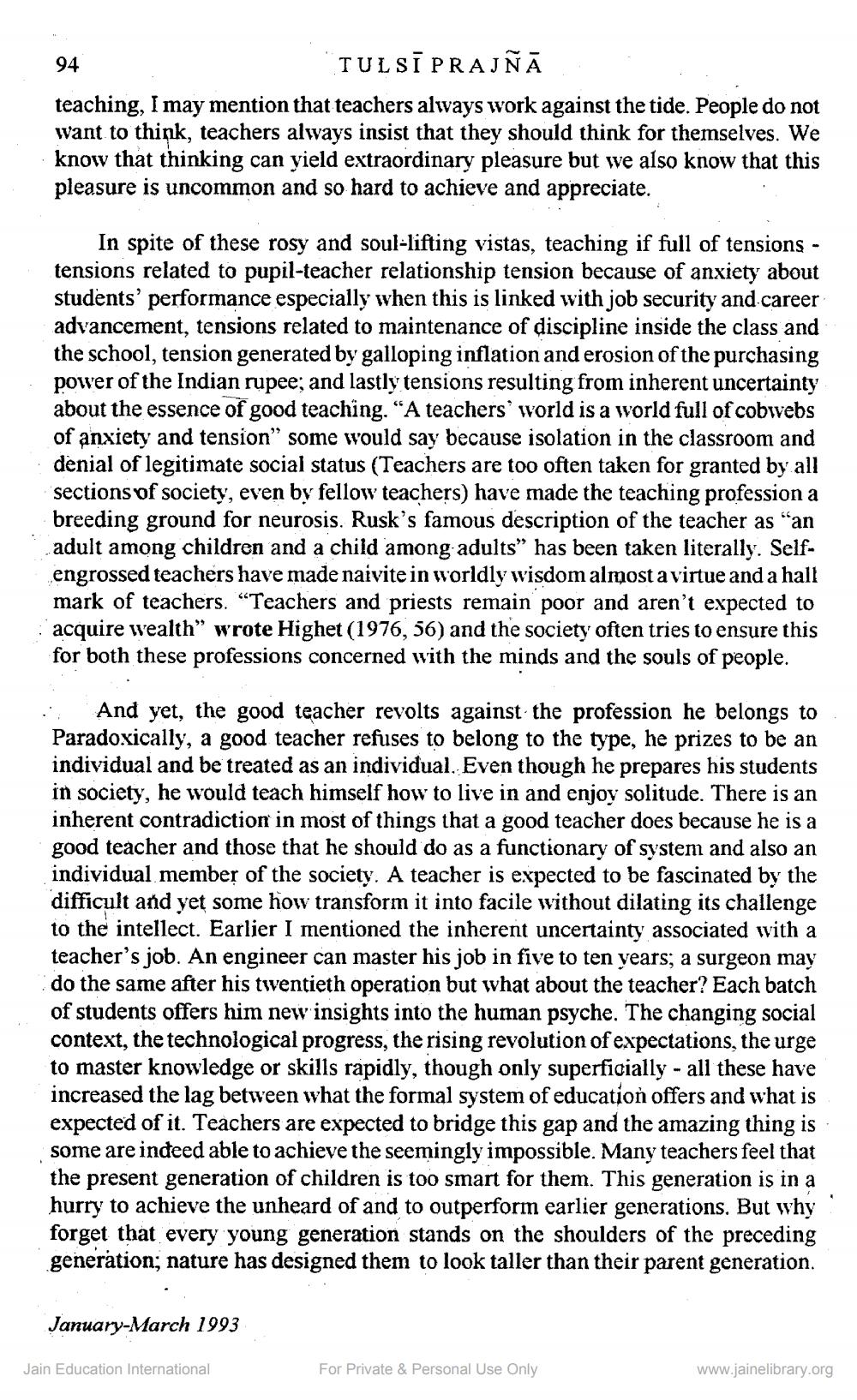________________
94
TULSI PRAJŇA teaching, I may mention that teachers always work against the tide. People do not want to think, teachers always insist that they should think for themselves. We know that thinking can yield extraordinary pleasure but we also know that this pleasure is uncommon and so hard to achieve and appreciate.
In spite of these rosy and soul-lifting vistas, teaching if full of tensions - tensions related to pupil-teacher relationship tension because of anxiety about students' performance especially when this is linked with job security and career advancement, tensions related to maintenance of discipline inside the class and the school, tension generated by galloping inflation and erosion of the purchasing power of the Indian rupee; and lastly tensions resulting from inherent uncertainty about the essence of good teaching. “A teachers' world is a world full of cobwebs of anxiety and tension” some would say because isolation in the classroom and
of legitimate social status (Teachers are too often taken for granted by all sections of society, even by fellow teachers) have made the teaching profession a breeding ground for neurosis. Rusk's famous description of the teacher as "an adult among children and a child among adults” has been taken literally. Selfengrossed teachers have made naivite in worldly wisdom almost a virtue and a hall mark of teachers. "Teachers and priests remain poor and aren't expected to : acquire wealth" wrote Highet (1976,56) and the society often tries to ensure this for both these professions concerned with the minds and the souls of people.
And yet, the good teacher revolts against the profession he belongs to Paradoxically, a good teacher refuses to belong to the type, he prizes to be an individual and be treated as an individual. Even though he prepares his students in society, he would teach himself how to live in and enjoy solitude. There is an inherent contradiction in most of things that a good teacher does because he is a good teacher and those that he should do as a functionary of system and also an individual member of the society. A teacher is expected to be fascinated by the difficult and yet some how transform it into facile without dilating its challenge to the intellect. Earlier I mentioned the inherent uncertainty associated with a teacher's job. An engineer can master his job in five to ten years; a surgeon may do the same after his twentieth operation but what about the teacher? Each batch of students offers him new insights into the human psyche. The changing social context, the technological progress, the rising revolution of expectations, the urge to master knowledge or skills rapidly, though only superficially - all these have increased the lag between what the formal system of education offers and what is expected of it. Teachers are expected to bridge this gap and the amazing thing is some are indeed able to achieve the seemingly impossible. Many teachers feel that the present generation of children is too smart for them. This generation is in a hurry to achieve the unheard of and to outperform earlier generations. But why forget that every young generation stands on the shoulders of the preceding generation; nature has designed them to look taller than their parent generation.
January-March 1993
Jain Education International
For Private & Personal Use Only
www.jainelibrary.org




